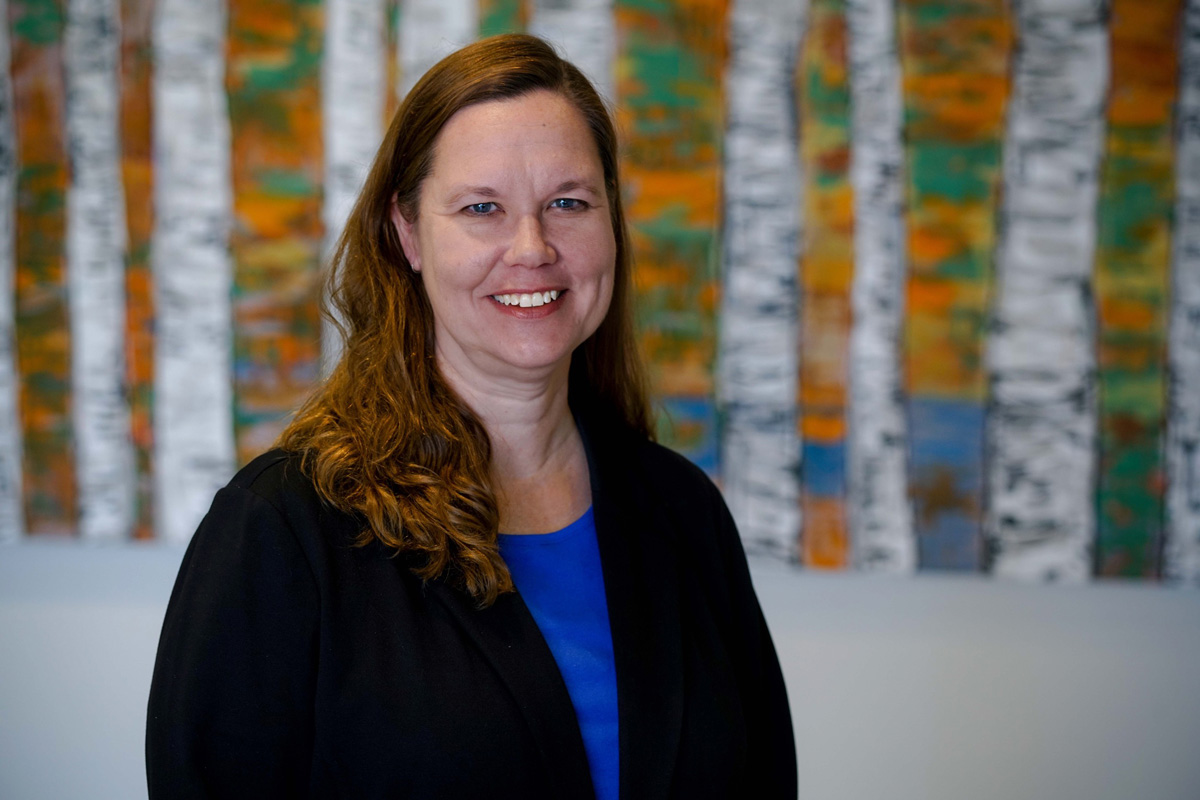- Study led by Dr. Theresa Hahn published in JAMA Network Open
- Number of transplants for blood cancers rose from 2009 to 2018
- Research team analyzed trends in transplant utilization for that period
BUFFALO, N.Y. — Every year, more than 22,000 patients in the U.S. undergo a potentially lifesaving blood stem cell transplant — often called a “bone marrow transplant” — for the treatment of hematologic diseases. But historically, some patients with blood cancers have been less likely than others to receive the treatment. Theresa Hahn, PhD, of Roswell Park Comprehensive Cancer Center is lead author of a new study in the journal JAMA Network Open showing that while progress has been made in reducing those disparities, older adults and Black patients are much less likely than people from other groups to receive a blood stem cell transplant.
The research team analyzed data provided by the Center for International Blood and Marrow Transplant Research (CIBMTR) for 136,280 patients who underwent hematopoietic cell transplant (HCT) in the U.S. between 2009 and 1018, comparing those numbers with the incidence of six blood cancers (acute myeloid and lymphoblastic leukemia, multiple myeloma, Hodgkin and non-Hodgkin lymphoma and myelodysplastic syndrome) in various age, race and ethnic groups the U.S. as reported by the National Cancer Institute’s Surveillance Epidemiology and End Results (SEER) Program.
The team found that during that period, the use of HCT increased for the treatment of most blood cancers — and rose among all age, race and ethnic groups.
The researchers also discovered that in the most recent years analyzed, from 2017-2018:
- The rate of HCT utilization for blood cancers rose among Hispanic and younger patients to equal the rate of non-Hispanic white patients.
- Non-Hispanic Black patients had a lower rate of HCT for all six diseases studied.
- Pediatric, adolescent and young adult patients had a higher rate than adult patients of allogeneic HCT, which involves receiving cells from a healthy donor.
“This study shows that while progress has been made to reduce disparities among racial and ethnic groups, there’s a need to improve hematopoietic cell transplant utilization rates in older adults and in Black patients of all ages,” says Dr. Hahn, Professor of Oncology in the Department of Cancer Prevention and Control at Roswell Park and the study’s first author.
The research team also include Dr. Hahn’s Roswell Park colleague Megan Herr, PhD, and collaborators from the Medical College of Wisconsin, Milwaukee; the CIBMTR; and the Mayo Clinic.
###
From the world’s first chemotherapy research to the PSA prostate cancer biomarker, Roswell Park Comprehensive Cancer Center generates innovations that shape how cancer is detected, treated and prevented worldwide. Driven to eliminate cancer’s grip on humanity, the Roswell Park team of 4,000 makes compassionate, patient-centered cancer care and services accessible across New York State and beyond. Founded in 1898, Roswell Park was among the first three cancer centers nationwide to become a National Cancer Institute-designated comprehensive cancer center and is the only one to hold this designation in Upstate New York. To learn more about Roswell Park Comprehensive Cancer Center and the Roswell Park Care Network, visit www.roswellpark.org, call 1-800-ROSWELL (1-800-767-9355) or email [email protected].

